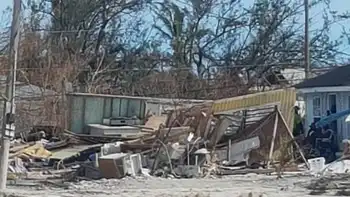Wineries turning pomace into power
NIAGARA-ON-THE-LAKE, ONTARIO - Like others in the wine industry, Vincor Canada used to send most of its leftover grape skin, pulp and seed to landfills - costly for the environment and the company's bottom line.
But in September, Canada's largest producer and marketer of wine and related products announced a deal with Vandermeer Greenhouses of Niagara-on-the-Lake, Ont., to create electricity using those wine leftovers, known as pomace.
Bruce Walker, executive vice-president of Vincor, says the project is the "most visible" example of the company's interest in sustainable wine-making - a trend emerging throughout Canada's wine industry. "The urgency is yesterday and that is how we are approaching this," he says.
This fall, Vincor shipped about 3,500 tonnes of pomace (most of the processing leftovers from three of its Niagara-area wineries) to Vandermeer's new $3-million anaerobic digester, which breaks down organic matter and captures methane gas for use as electricity in the greenhouse operations. Any surplus is sold to Ontario Hydro's grid to heat and light homes in the Niagara area.
Randy Van Berkel, general manager of Vandermeer, says close proximity to a big supplier of organic material helped the company invest in the digester, with financial assistance from the Ontario government, "at a drastically reduced cost."
Mr. Walker estimates Vincor saved $50,000 by not trucking the pomace to landfills. Vincor now is looking for a partner to invest in an anaerobic digester in British Columbia to process pomace from its Okanagan Valley wineries. Green initiatives also cut costs, he says, citing a retrofit of one Okanagan winery to recycle water at a savings of $75,000.
Mr. Walker, also chairman of the Wine Council of Ontario's sustainable wine-making committee, says the industry's move to more eco-friendly practices creates a "triple bottom-line" impact: a demonstration of social responsibility, cost savings and reduced carbon footprint. This year, 24 wineries (40 per cent of the Ontario industry) signed on to the Wine Council's voluntary guidelines on sustainability, up from 17 a year earlier. The future of green, he says, "is very bright."
Related News

Congressional Democrats push FERC to act on aggregated DERs
WASHINGTON - The Monday letter from Congressional Democrats illustrates growing frustration in Washington over the lack of FERC action on multiple power sector issues.
Last May, after the FERC technical conference, 16 Democratic Senators wrote to then-Chairman Kevin McIntyre urging him to develop guidance for grid operators on aggregated DERs.
In July, McIntyre responded, saying that FERC was "diligently reviewing the record," but the commission has taken no action since.
Since then, "DER adoption and renewable energy aggregation have continued to grow," House and Senate lawmakers wrote in their identical Monday letters, "driven not only by state and federal policies, but consumer interest…




